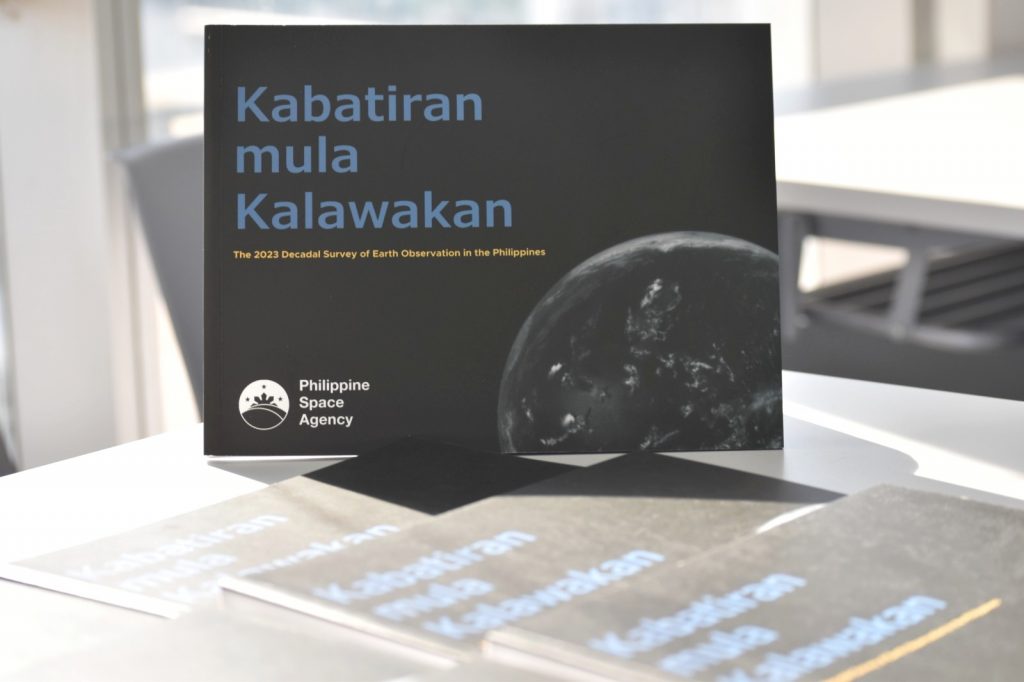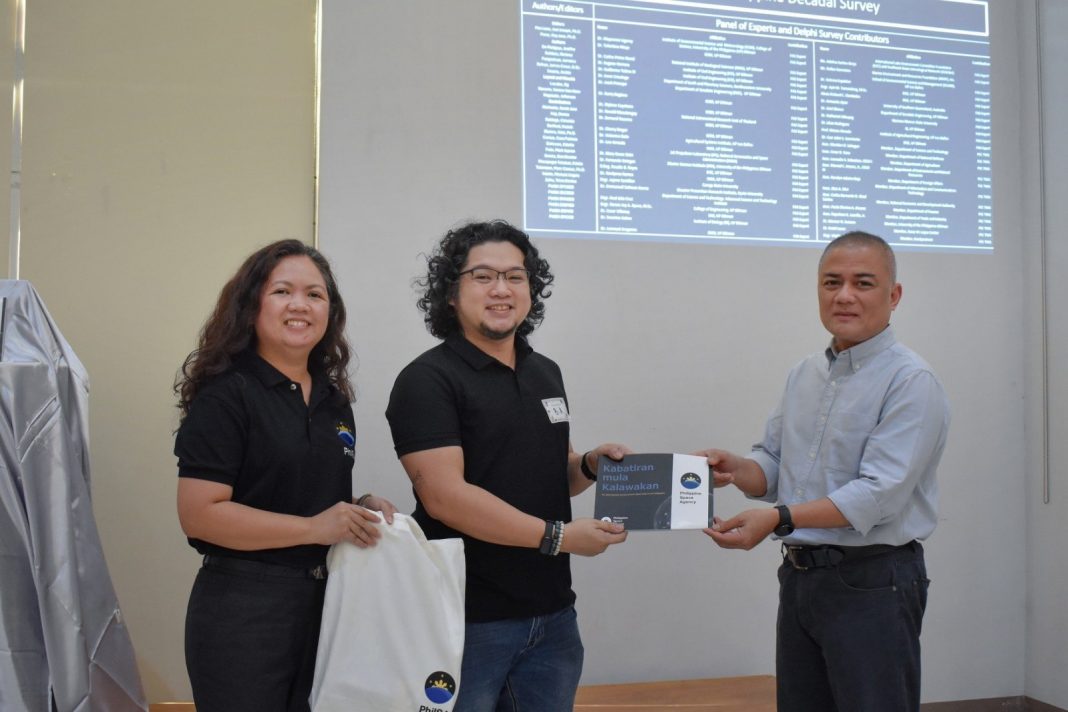The Philippine Space Agency (PhilSA) officially launched the “Kabatiran mula Kalawakan: The 2023 Decadal Survey of Earth Observation in the Philippines” book during the second Space Ecosystem Corps (SPOC) session at the College of Science Administrative Building, University of the Philippines Diliman, Quezon City on 29 February 2024.
The 2023 Decadal Survey is a synthesis of the inputs from the science community and stakeholders, showing the most important challenges in Earth observation (EO) for the Philippines that may persist or arise in this decade, along with corresponding objectives and available satellite solutions.

It also assessed the status of EO needs and utilization in the country, defined and prioritized key challenges that may be addressed by space-based technology, provided a basis for determining priority missions that will address most important challenges, and generated recommendations for integrated and sustainable conduct of space-based EO, and data utilization and mobilization.
Carried out in two phases, the six (6) focus areas were identified during the first phase by engaging the experts from the scientific community to define the key components of EO activities and their corresponding challenges and objectives. The focus areas covered the following: Hydrologic Cycles and Climate Studies; Weather, Air Quality and Atmospheric Processes; Earth Surface and Interior: Dynamics and Processes; Hazards and Disaster Risk, Reduction and Management; Aquatic Ecosystems and Water Resources Management; Terrestrial Ecosystems and Land Resources Management.

Phase 2 involved representatives of the academe, government agencies, non-government agencies (NGOs), and private institutions to rank the identified challenges and objectives.
Members of the Philippine Space Council (PSC) also participated in a Delphi Survey aimed to identify key challenges and objectives of the decade and provide information on space-related activities and capabilities currently implemented by their agencies.
The results of the study will help shape the direction of scientific research and possible funding priorities for the decade, along with feeding the development of PhilSA’s 10-year Space Mission and Technology Roadmap and the Data Mobilization and Utilization Plan.
The Decadal Survey was first initiated in 2020 through the Advanced Satellite Development and Know-How Transfer for the Philippines Project (ASP) under the Space Technology and Application Mastery, Innovation and Advancement (STAMINA4Space) Program, which was then continued by PhilSA upon its establishment.
Read the 2023 Decadal Survey here: https://philsa.gov.ph/kabatiran-mula-kalawakan-the-2023-decadal-survey-of-earth-observation-in-the-philippines
SPOC is an assembly among SSTA experts to exchange and disseminate information, best practices, and feedback on SSTA programs, developments, and related matters. PhilSA aims to create a space hub for learning and skill sharing among its community members.














